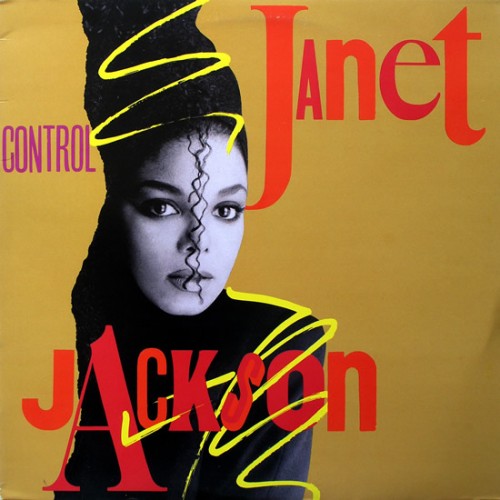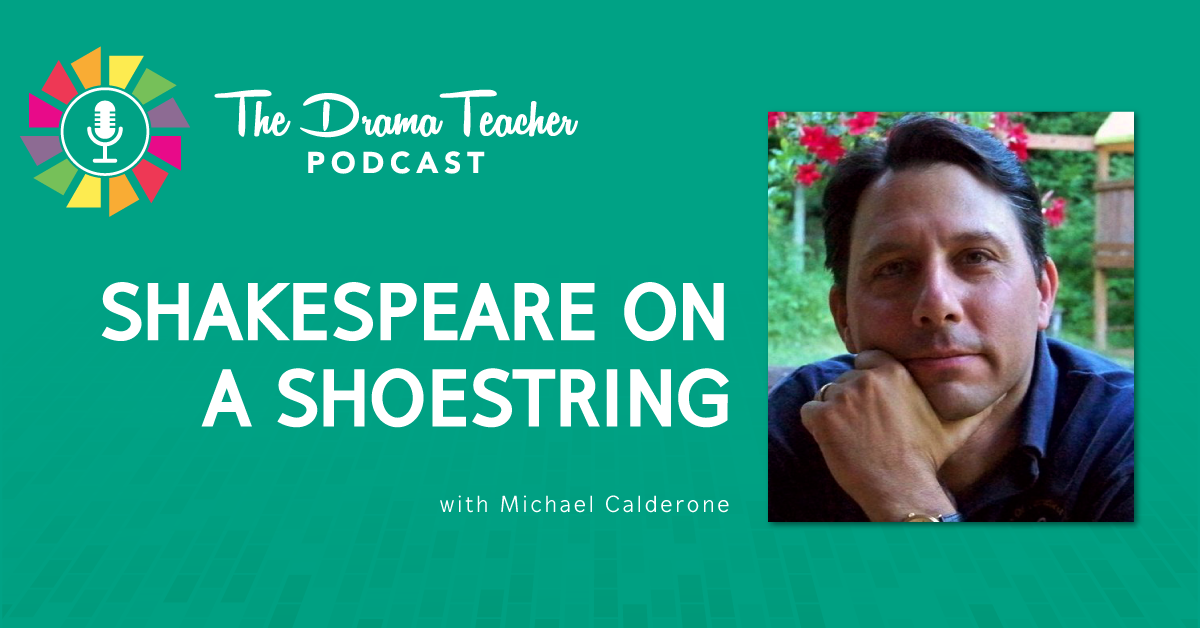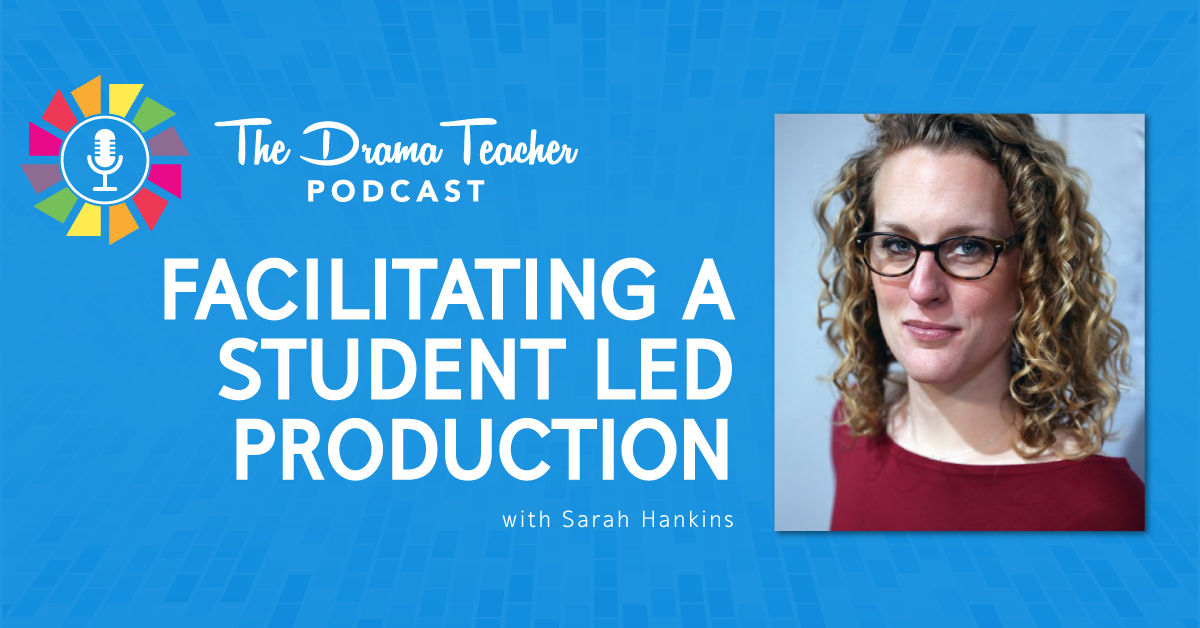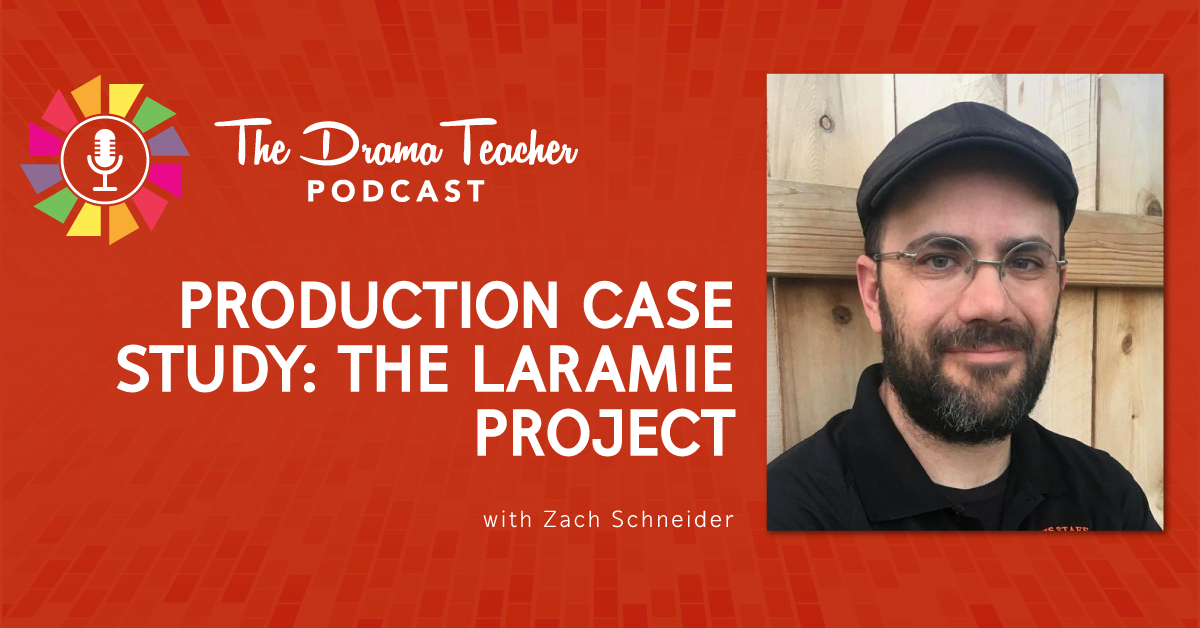Control
Episode 16: Control
There is a reason that Lindsay writes for her own company and has never had any desire to go to Hollywood and become a screenwriter. It’s all about control.
Show Notes
- Blog series on Preparing for Competition: Part One, Part Two, Part Three
Subscribe to The Theatrefolk Podcast
Episode Transcript
Welcome to TFP, The Theatrefolk Podcast. I am Lindsay Price, resident playwright for Theatrefolk.
Hello, I hope you’re well. Thanks for listening.
Today, it’s all about control and I can’t be held responsible if I start singing some Janet Jackson which, you know, just betrayed exactly how very old I am. But first, let’s do some Theatrefolk News.
I am pretty happy with some blog posts I did last week. I recently adjudicated a one-act festival which had 44 plays in competition. Yes, that was right, four four. And while I didn’t have to judge 44 plays, I did have to sit through half, 22 in a row over two days. Yes, that is a lot of plays. But what was most interesting and most frustrating is that there were so many schools who competed and made the same mistakes, missteps, over and over and over again. So, I did a three-part blog series last week. Part one was on choosing a competition piece – for example: don’t turn a small-cast play into an ensemble extravaganza; solving performance problems in rehearsal, meaning get those problems out of the way even before you step on your stage, and part three was all about what to do and what not to do on performance day. For example, know the size of the door your set has to go through, especially when you only have two minutes to get your entire set in place.
And lastly, where, oh, where can you find this podcast? We post new episodes every Wednesday at theatrefolk.com and on our Facebook page and Twitter. You can find us on the Stitcher app and you can subscribe to TFP on iTunes. All you have to do is search on the word “Theatrefolk.”
Episode Sixteen: Control
That was horrible. See, now that I’ve mentioned Janet Jackson, all I’ve got running through my head is the fact that her first name ain’t Baby. Oh, I’m such a dork. Okay, so before I sat down to do this, I had to look this up because all I’ve been doing is singing Janet Jackson and her album, Control, came out when they actually made albums, 1986. I have these very vivid memories of Janet Jackson and her videos and they all occurred 26 years ago. I have 26-year-old memories. Ugh!
So, okay, the podcast today – the topic of which is not Janet Jackson – surprise! But it is about being in control, and specifically being in control as an artist. And I think it’s one of the most important things to have control over your art but it’s also one of the most slippery-est things. Is that a word? Most slippery, something that can slip through your fingers with such ease. It’s easy to lose control and it’s easy to fear losing control so much that you can take your work, lock it in the basement, hide it in a cave so no light or air can get to your work and it becomes pale and anemic until someone has come to rescue your work – maybe Janet Jackson – and your work staggers into the light, blinking against the glare of the sun. See? This is what the topic of control can do to you. Turn you into a blathering idiot, Lindsay? Why, yes, yes, who said that? Why, I did! Are you talking to yourself? Why yes, yes, I am!
Okay. When it comes to my work, I’m actually both a control freak and the opposite of a control freak. I don’t know what that is, I am the anti-freak. Now I’m going to start singing Rick James. All right, no, I’ m not going to do that.
Yes, two things in one, ugh! Two things in one which is also like a commercial which I think is older than Janet Jackson. What is it? Two, two, two things in one! Two shampoos in one? Oh, oh, never mind. Okay, I am so old. Ugh!
First, control. There is a reason that I write for myself and I have my own company. You might say it’s because no one would have me. Oh! But the truth is that in the few situations I’ve been in where I’ve worked for someone else, it just didn’t go well.
Every once in a while, I get it into my head – less so now because I am old enough that I can talk myself out of it. See? It’s good to talk to yourself. I start to think, “Oh! I’m too isolated. Oh! I have to work with someone else. I have to collaborate. I have to broaden my horizons.” And it just doesn’t go well. If I write for someone else, or if I work with someone else, the fact that things aren’t going the way I think they should go and I don’t have complete control of the work, it just doesn’t sit well with me. It freaks me out.
I like being the one who writes the work, who decides what exactly goes into the work, what comes out of the work. I have a standard that I want with the work. Sometimes, others don’t feel that way and that really irks me. I would never make it as a television writer or a screen writer. I don’t play well with others, particularly others who want me to bend to their way of thinking. Students ask me all the time. Everyone asks me! I have this, a number of years ago, I was in an eye doctor’s office in Toronto and this eye doctor was really big on being a sort of a rockstar optometrist although I’m not sure looking at people’s eyes qualifies for the rockstar sort of mantle but he had very white teeth and a tan and when he found out I was a writer, he was all about the Hollywood, all about Lala-land. “Don’t you want to go there? Don’t you want to go to LA? Wear sunglasses. Write in your swimming pool. Don’t you want to be in that lifestyle? Don’t you want to write movies or write TV?” And he was, he was really flabbergasted when I said, most emphatically – probably rudely because I don’t play well with others — I said, “No, I don’t want to write for anyone else. I don’t want my work messed with by someone who seriously doesn’t know better than me. I don’t want to be part of a writing team. I don’t want to be part of a committee. I want to do all the writing. Me, me, me!” And I know all this because I’ve done it. Not in Hollywood but I have written for a TV show and, by far, it was the worst experience of my life – me, as a writer. I know that that’s not the case for everybody. I do not speak for everybody. I only speak for me. And being a writer on this stupid TV show, ugh! It’s 100 percent responsible for being addicted to Diet Coke. We had to write a hundred episodes of a health panel talk show in less than a month. That alone should have tipped me off that things weren’t right. But, you know, I must confess that maybe, like, earlier in my life, when I was living in Toronto that that optometrist was not far off the mark. That way back when, you know, maybe I did have dreams of going to Lala-land, of being a screenwriter, writing for television because, well, everybody does it, right? That’s how you make money as a writer, right? It’s one of those things, those treadmill things. You see other people on a certain treadmill and all of a sudden everyone around you is on a treadmill and you just instinctively think, “I should be on that treadmill. Why aren’t I on the treadmill? I know how to run. I can do it. I should be doing what everyone else is doing. I’m supposed to want to write for television so that’s what I should do!”
If as an artist you can learn not to fall prey to the, “everyone else is doing it I should do it too and therefore I should get on that treadmill.” If you can learn not to get on the same treadmill as everyone else, you will be so far ahead because there is no one-size-fits-all treadmill. Stick that on a Post-It on your computer, embroider it on a towel, and everyone is not made to write the same way and everyone is not made for television. I am not made to write for television. I am not made to write with others. I am made to sit in my little office with my pot of tea, in my pajamas, and write for schools. That’s what I’m made for, that’s what I can do.
But, what if you come up with a loophole? What if you sort of get on the treadmill which is beside the treadmill that everyone else is on? Why don’t you write for money and not get involved, right? Oh, what a great loophole! You want money, don’t you? You just write something, just write for someone else and don’t get involved and then you can bank all that cash. Right! Yes, you can bank all that cash, and then, when you have all that cash, you can write what you really want to write. What about that? Isn’t that a great loophole, Lindsay?
Well, first, the reason I’m a writer is that I like getting involved with what I’m writing. I think that’s the point. I don’t think there’s a point in writing something I’m not interested in. I don’t think there’s a point in writing something for the money. Why would I write? Why would I do the thing that excites me, surges passion within me, that is a wonder to me, why would I do this thing and not be involved?
So, that’s a lovely notion, that’s a lovely side-tangent treadmill, but I get involved, rightly or wrongly. And I know that, again, getting on that side-tangent treadmill is just not for me because I’ve done that. I’ve been there too. I made that really, really, really, really, really, really rotten mistake of writing when my heart isn’t in it and it didn’t go well. I think the apt description of the experience is soul-crushing to the Nth degree and I’m not real keen on having my soul crushed. I’m not real keen on taking this thing that I love to do and turning it into something soul-crushing.
Okay, so now let’s talk about the opposite side of being a control freak. Believe it or not, I am not freakish about productions making some changes to my work – some, let me reiterate – some, as in, only in a specific situation which might mean that I’m still being control freaky. Anyway, the majority of my work is done in schools – as in 99.9 percent – and so that means that I often deal with teachers and teachers often have to deal with administrations who are generally inflexible, are not artists, and not real fans of drama, and who sometimes make demands of their teachers such as, “You cannot say this word.” I’m always amazed at “the word.” A lot of times it’s a word that I would never, never consider questionable because here at Theatrefolk, we’re not dumb, we’re not stupid. We know we deal with schools and there are indeed words that should not be said in a school setting. They’re words that are not in our plays.
It’s always amazing to me when a word which is one of the big kahuna bad words comes back as one of the words that you’re not allowed to use. It always puzzles and puzzles me and it also reminds me, time and time again, about how powerful words are and how afraid adults are particularly of words. There are people who think words, not guns, not knives, not fists, but words! Words can make people do things, even in this cynical age, this 21st century world with all this knowledge at our disposal. People think that words have power and so, when administrations tell teachers, “You cannot say this word,” and the edict comes down, I have to make a decision. Let them cut the word or they cancel the play. And I could get on my high horse, you know, “How dare you change my blood, sweat, and tears! How dare you lowly peon try to change me! I am an artist! I know what I’m doing,” and so on and so on. You get the point.
But the real point is that, in my experience, at the school level, process is more important that product. Sometimes the process of a school putting on a play, of a student being in a play, having that experience, is more important that the final product. Sometimes, what those students learn from their experience is life-changing, even if they don’t get to say such and such a word. And who am I to deny a life-changing experience? That is supposedly what I’m supposed to be encouraging. I want my plays to have effect. I want my plays to mean something and sometimes, just the mere act of being in a play, a fluffy little comedy, or an issue-driven drama, just being in that play means something.
Another area when it’s okay to be a little less of a control freak about your work is when it comes to feedback. The only way we get better as artists is to let somebody say something about our work and every artist should have someone in their life who will give them critical feedback. You know, so it’s not all, “You’re awesome! You’re so great! Don’t change a thing! You’re amazing!”
Conversely, that doesn’t mean that this person should rip you to shreds, pour gasoline over your draft, and throw in a match. But we need to be able to listen to criticism, absorb criticism, and sometimes, change our work to reflect that criticism. If we hold our work in an iron fist and proclaim that we are the ones, we are the only ones who understand the great art we are creating, that means that you are creating in a vacuum and nothing survives in a vacuum.
Now, having said that, it’s one thing to let a little control go when the person giving you the advice is saying something that will make your work better, it’s another thing to be all loosey-goosy with the control when you’re trying to take your work to the next level. When you think that what you need to do to get published, to get produced, is to give away your control.
When you say to a producer, when you say to a publisher, “You can change the play. I’ll do whatever you want. Just publish me. Produce me.” You can’t let control of your work go like that. It says you don’t believe in what you’ve put on the page. And what happens if the person you’re saying that to is a louse who doesn’t have your best interest at heart? What if you make all those changes and they still don’t publish you? They still don’t produce you? Then where are you? You must believe in your work. You must know the purpose and the drive of your work.
If you always have a firm grasp of your intentions then when someone presents a criticism, you can always address whether it fits the purpose of the work. If somebody says something you’re not sure about, you can address it in those terms. “This will bring the work away from my intended purpose,” right? As opposed to saying, “Oh, I don’t like your comment.” You know, you can always ground what you’re referring to in your purpose of the work. And frankly, if a producer wants you to steer you away from your intended purpose, you don’t want to work with them. Period.
Okay, I think that is enough talk. That’s enough of me talking, or blathering on, and I’m not going to sing anymore. I’m just going to sit here and I’m going to him quietly to myself which I think is worse than talking to yourself. Right, okay.
And that’s where were going to end things. Take care, my friends. Take care.
Music credit: “Ave” by Alex (feat. Morusque) is licensed under a Creative Commons license.



